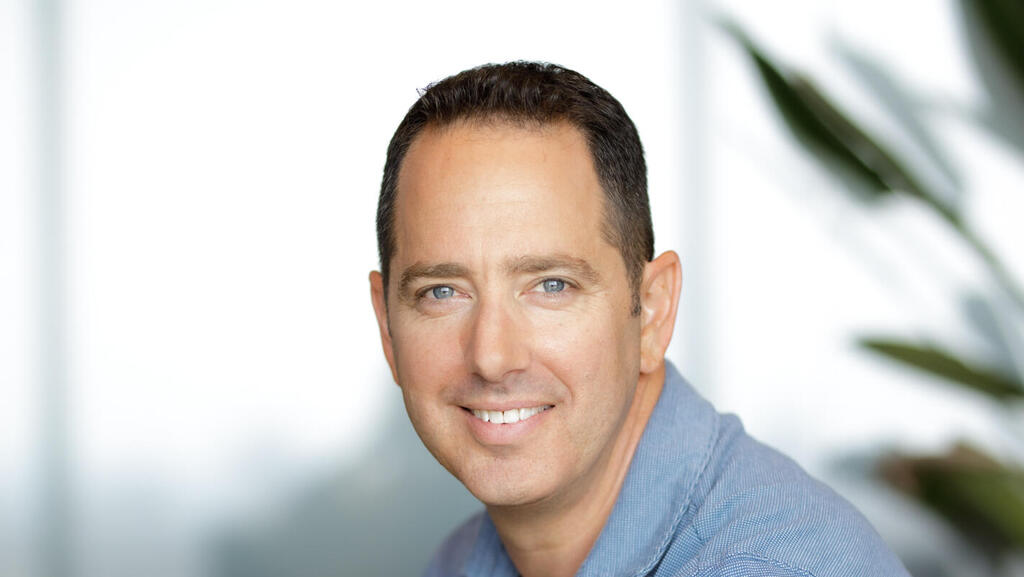
2022 VC Survey
"Good companies will be able to grow back into their valuations"
Rotem Eldar, Managing Partner at Israeli VC 10D, joined CTech to share insights and predictions for the early-stage space in the year ahead
"The success of Israeli startups depends on the health of the global economy and is impacted by consumer spending and the state of its customers across U.S., Europe, Asia and all over the world," said Rotem Eldar, Managing Partner at Israeli early-stage VC 10D. "As long as there is inflation, rising interest rates and the global economy is being strongly impacted, the growth of the Israeli startups will be affected."
Read every interview in our ongoing project
According to Eldar, a major factor to consider when conidering the global processes which will affect (positively and negatively) the Israeli market is that a significant portion of the tech talent pool in Israel is employed by global international tech leaders such as Google, Meta, Amazon and Intel. "As these companies and continue to tighten their spending, this will affect the dynamics for talent in the Israeli tech ecosystem."
Name: 10D
Total sum of funds: $355M
Partners: Rotem Eldar, Yahal Zilka, Itay Rand
Notable portfolio companies: Exodigo, Juno Journey, Obligo, One Step, Seebo (now Augury)
Rotem Eldar joined CTech for the latest installment of “2022 VC Survey” to share insights and predictions for the year ahead.
If 2020 was the year of the pandemic, and 2021 was the year of records, how would you define 2022 in the VC sector?
We would refer to 2022 as the year of coming back down to earth after what now can be categorized as an outlier year. Most non-traditional investors retreated from the VC investment landscape, which mostly affect the late-stage rounds. Investors return to the fundamentals and measure companies based on business KPIs and not only on growth. The bars are being raised, but healthy businesses continue to raise capital. After what seemed like access to a never-ending supply of capital, we see companies adjusting their plans and strategy, shifting away from a growth at all costs mentality and get back to their fundamentals – having a solid product-market-fit, extending runway, focusing on efficiency and unit economics, and building a path to breakeven/profitability.
Companies try to build substantial assets before raising additional funding to meet investors’ expectations.
Who are the big winners of 2022 and why?
The winners are the start-ups that succeeded in demonstrating a clear ROI on their offering. While most customers are tightening up their budgets, these companies were able to maintain low churn and even expand sales with existing customers.
Who are the big losers of 2022 and why?
The big losers are those who had shaky unit economics, financed growth through huge losses and burned through cash too quickly, thus leaving them with insufficient runway to make the proper adjustments to the new market environment. These companies relied on a continued infusion of cheap capital that is no longer available due to the rising interest rates.
What do you expect in the VC sector in 2023?
I believe that now is a great time to start new companies and at 10D we continue to be very active as we believe that the early-stage space will be less impacted by macroeconomic shifts. New companies formed during these times are being built on a more solid business foundation. I recommend that companies raising now should aim for sufficient capital for at least 24 months of runway to make enough business progress and achieve the needed validation towards their next round of financing.
What global processes will affect (positively and negatively) the Israeli market?
The Israeli start-up ecosystem is by and large addressing the global market. The success of these start-ups depends on the health of the global economy and is impacted by consumer spending and the state of its customers across US, Europe, Asia and all over the world. As long as there is inflation, rising interest rates and the global economy is being strongly impacted, the growth of the Israeli start-ups will be affected.
In addition, currently a significant portion of the tech talent pool in Israel is employed by global international tech leaders such as Google, Meta, Amazon and Intel. As these companies and continue to tighten their spending, this will affect the dynamics for talent in the Israeli tech ecosystem.
How should different companies (large, medium, early-stage) prepare for the coming year?
The most reiterated message is to grow your cash position – be it by raising capital or reducing your burn rate. Seeking out non-dilutive grants (local or international) is also a good way to extend runway. In addition, I would recommend focusing on expanding selling to verticals outside of the tech space and target customers in industries and markets that are more recession-proof. I would also shift the company’s messaging and sales strategy to focus on savings and clear ROI as opposed to growing the top line. Demonstrate to your customers how you are helping them save money and making them more efficient rather than how you are helping them grow.
What will be the fate of the dozens of unicorns born last year?
With the significant impact on tech multiples in the public market, it is clear that the valuations set for private companies in 2021 may be more challenging to sustain in an upcoming financing round. The good companies will be able to grow back into their valuations in an efficient way before having to raise their next financing round. However, not all companies will have enough runway and will need to make tough decisions.
What sectors in high-tech should we look out for in the coming year - and why?
At 10D we have been bullish about healthcare sector over the past several years and believe it is positioned for major technological disruption and is more immune to economic downturns. In addition, we believe that AI will continue to advance at an exponential pace and we will see more vertical solutions to automate and accelerate numerous manual tasks including those that require domain expertise.
Now is a good time to build and invest in deep technologies and they can take the time needed to build complex and differentiated solutions which will take longer to mature. These deep tech companies are positioned to thrive when the market sentiment improves and includes sectors such as quantum computing, spacetech and more.
HR: Do the layoffs, those that have already happened and those that are coming, help to fix in any way the distress experienced by companies over the past 2-3 years?
I believe that lay-offs are just one part of a strategy to improve efficiency, extend runway, and shift a company from a mindset of growth at all costs to more operationally efficient. Lay-offs on their own won’t repair the company and need to be part of a larger plan. There will always be demand for top talent and I believe that in the long term, the tech industry in Israel will continue to grow and thrive.
One Step, Juno Journey, Obligo, Exodigo - 10D's notable portfolio companies
OneStep
OneStep is on a mission to redesign physical therapy, making it convenient, innovative, and exceptionally effective for anyone with a smartphone. The company's science based technology can turn any smartphone into a clinical-grade gait lab, offering immediate gait detection and comprehensive real-time analysis for physical therapists and patients
Founders: Tomer Shussman, Yuval Naveh, Shahar Davidson
Founding year: 2019
Number of employees: 50
Explanation behind investment: We are excited about OneStep’s unparalleled technology – it is the only consumer-grade, FDA-listed, tech-based solution. The growth potential of the physical therapist industry is tremendous and at the time of investment, insurance reimbursement for remote physical therapy was already in place in the US market. Therapists had a high motivation and need for such a digital and remote treatment solution.
Juno Journey
Juno Journey is a personalized employee development platform providing businesses with the tools to engage their people and empower them to grow professionally by how they - onboard, enable, develop, and retain them throughout the employee life cycle.
Founders: Dor Nachshoni, Jeremie Israel, Ofer Ben-Attar, Yehonatan Korach
Founding year: 2017
Number of employees: 60
Explanation behind investment: We are strong believers in technology that improves the “future of work” and addresses the changing dynamic between employers and employees. Juno has succeeded in building a tool that puts employee growth and development at the forefront. The product ultimately improves the success of the overall business and strengthens the connection between employers and employees by improving employee performance, while increasing employee satisfaction and retention.
Obligo
Obligo harnesses financial technology to build trust between renters and landlords, making the rental process as simple as checking in and out of a hotel. The company offers a holistic product suite to streamline rental owners operations, boost their bottom line, power a superior rental experience and comply with ever-changing regulations.
Founders: Roey Dor, Omri Dor
Founding year: 2018
Number of employees: 60
Explanation behind investment: We believe that Obligo is solving a real problem and pain point. The private rental market in the US is only continuing to grow while the rental deposits sit idly. Obligo incentivizes both tenants and landlords/property managers to utilize its products.
Exodigo
Exodigo is the new gold standard for non-intrusive discovery of the subsurface. The company’s subsurface mapping solutions combine advanced sensors, 3D imaging, and AI technologies to provide a clear picture of the underground for customers across transportation, utilities, construction, and more.
Founders: Ido Gonen, Jeremy Suard, Yogev Shifman
Founding year: 2021
Number of employees: 75
Explanation behind investment: We were extremely impressed with the Exodigo team and their unparalleled experience in AI and signal processing from the elite Israeli intelligence units. Exodigo is creating a completely new category that has the potential to save billions of dollars that are spent on unnecessary excavation and drilling annually.
